Discovering the Secrets to Success: An Exclusive Interview with Java Champion Michael P. Redlich
- May 15, 2023
- 4816 Unique Views
- 8 min read
- Bazlur: First of all, congratulations, Mike, on your recent achievement of becoming the Java Champion. How are you feeling?
- Bazlur: That's fantastic, Mike! It's great to see your hard work and dedication recognized. You have been a Java champion for many years already. What qualities or attributes do you possess that led to your becoming a Java Champion?
- Bazlur: Your passion for Java and dedication to the community are truly inspiring, Mike. What do you hope to achieve or contribute to the Java community in the future?
- Bazlur: It's lovely to hear about your plans to contribute more to the Java community, Mike! We look forward to your book on Helidon and increased involvement in conferences and JUGs. As you prepare to retire from ExxonMobil, could you please share with us your journey into the software engineering field? Your story would serve as an example for many aspiring developers, and they might gain insight from your experiences. What were some pivotal moments or turning points in your career that you'd like to share?
- Bazlur: Thank you for sharing your journey, Mike! It's truly inspiring to hear about your experiences, from your early days learning Fortran IV to your contributions at ExxonMobil and becoming a seasoned Java developer. Your commitment to continuous learning and adapting to new technologies is a testament to your dedication to the field. Considering your years of experience in the software engineering field, what key pieces of advice would you give to junior developers or those just starting out in the industry today? Are there any specific skills or practices that you believe are crucial for success in the ever-evolving world of technology?
- Bazlur: You mentioned contributing to open source, and I understand that you have been involved in two major Jakarta EE specifications. Please share with our audience how your contributions to open-source projects have impacted your career.
- Bazlur: Could you provide some guidelines or recommendations for a junior developer looking to contribute to open-source projects?
- Bazlur: Let's shift gears and talk about the current state of software development. In your opinion, what are some of the biggest challenges that developers face today? Additionally, do you have any advice on how to overcome these challenges?
- Bazlur: Thank you for sharing your valuable insight with us; I am sure our readers will benefit immensely. On a different note, could you tell us some funny or interesting stories from your time in the software industry?
- Bazlur: Thank you so much for sharing your insights with us. We really appreciate your time. If we have any further questions, we will be sure to reach out to you. Before we end, is there any parting advice or resources you would like to share with our readers, such as a list of recommended books or any other helpful information?
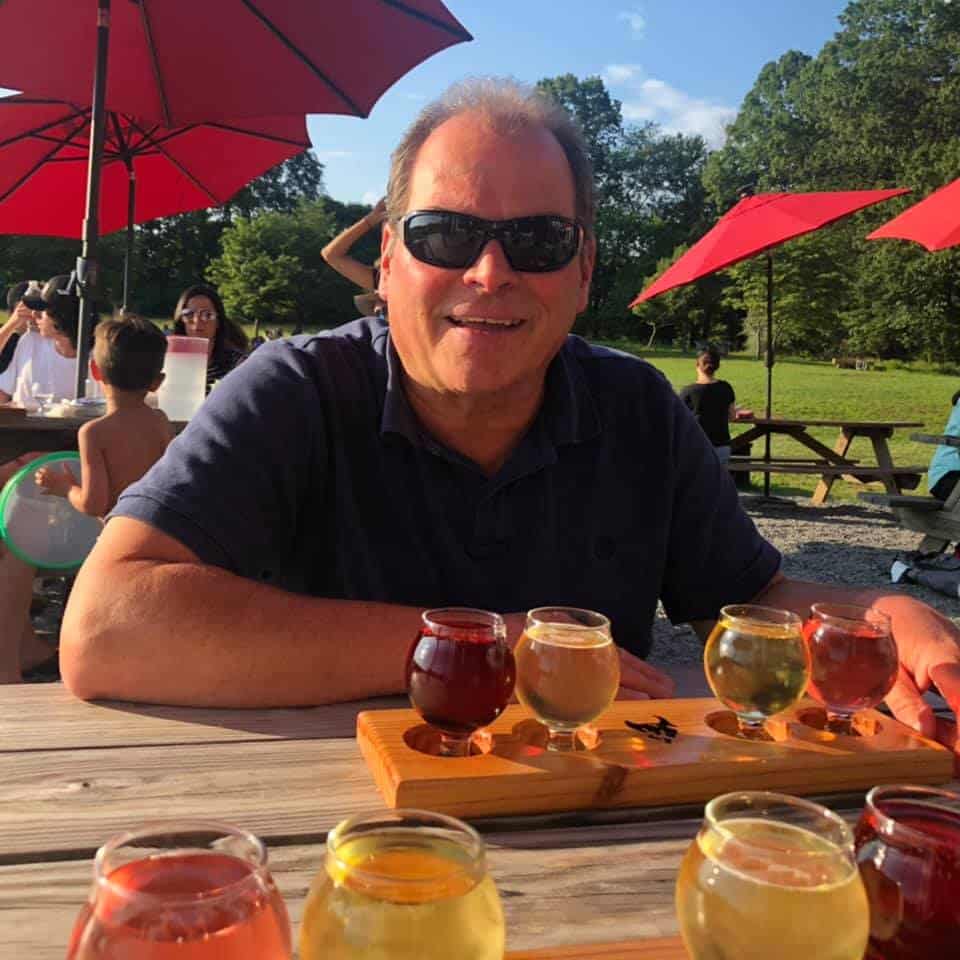
In this interview, we had the pleasure of speaking with Michael P. Redlich, a seasoned software developer with over 30 years of experience in the field.
Michael shares his journey from learning Fortran IV to contributing to major Jakarta EE specifications and provides valuable insights for junior developers looking to succeed in the ever-evolving world of technology.
He emphasizes the importance of continuous learning and adapting to new technologies, and contributing to open-source projects.
Michael also discusses the challenges developers face today, particularly with the rapid growth of cloud computing, and shares some amusing anecdotes from his time in the industry.
Overall, this interview provides a wealth of knowledge and advice for anyone interested in pursuing a career in software development.
Profile:
- 🏠 Home Page: https://redlich.net/
- 📝 Blog: https://mikesjavacafe.blogspot.com/
- 💼 LinkedIn: https://www.linkedin.com/in/michael-redlich-13a966/
- 🐦 Twitter: https://twitter.com/mpredli
- 🐙 GitHub account: https://github.com/mpredli01
- 🔒 Committer, Jakarta NoSQL specification: https://projects.eclipse.org/content/michael-redlich-committer-jakarta-nosql
- 🔒 Committer, Jakarta Data Specification: https://projects.eclipse.org/content/michael-redlich-committer-jakarta-data
Key Takeaways:
- Young developers should be open to more than one programming language. They should consider contributing to open-source projects to learn more about programming languages and gain experience.
- Cloud computing has seen the most significant growth in the software development industry in the past 10-15 years, and developers will need to learn newer technologies to maintain success.
- Conferences and Java User Group meetups are great opportunities for developers to learn as much as possible and follow their passions for learning, developing, and contributing.
- A growth mindset and willingness to learn and adapt to new technologies is essential to succeed in the software industry.
Fun Facts
I'm an avid cyclist, along with my wife, Rowena. I'm also a former marathon runner, having completed 11 marathons and one ultramarathon (50K).
Bazlur: First of all, congratulations, Mike, on your recent achievement of becoming the Java Champion. How are you feeling?
Mike: Thanks, Bazlur! It was an emotional afternoon the day I learned that I was named a Java Champion.
I had to ask myself if this was really happening.
I am, of course, honoured and delighted to be in the company of the Java luminaries that I have admired for a number of years.
Bazlur: That's fantastic, Mike! It's great to see your hard work and dedication recognized. You have been a Java champion for many years already. What qualities or attributes do you possess that led to your becoming a Java Champion?
Mike: I believe that having a passion for something is the most significant attribute. I started the Garden State JUG (formerly the ACGNJ JUG) in February 2001. It was a small, tight-knit group, but we weren't well-known for a number of years. It wasn't until 2020, during the height of the pandemic, that four of us, the current co-directors, decided to rebrand the JUG and go on our own.
As a not-for-profit 501(c)(3) organization, we worked hard to get everything in order. This same passion drives me with my writing at InfoQ and the open-source contributions that have led me to be elected as a committer on the Jakarta NoSQL and Jakarta Data specifications.
Bazlur: Your passion for Java and dedication to the community are truly inspiring, Mike. What do you hope to achieve or contribute to the Java community in the future?
Mike: With my upcoming retirement from ExxonMobil, I will be able to dedicate additional time to contribute to the Java community. My plans include the following:
- Finishing a book on Helidon, the ability to attend/present at more Java conferences and JUGs.
- Attending additional training sessions/webinars.
- Increasing my contributions to open-source projects and continuing my writing for InfoQ.
Bazlur: It's lovely to hear about your plans to contribute more to the Java community, Mike! We look forward to your book on Helidon and increased involvement in conferences and JUGs. As you prepare to retire from ExxonMobil, could you please share with us your journey into the software engineering field? Your story would serve as an example for many aspiring developers, and they might gain insight from your experiences. What were some pivotal moments or turning points in your career that you'd like to share?
Mike: Wow, this answer will be somewhat long-winded, so please bear with me.
Allow me to start by discussing my first exposure to computer programming. It was senior year in high school when I learned Fortran IV using IBM punch cards. Yes, I'm that old! I thought it was cool to program a computer, but I didn't do much with programming after taking a computer programming course in my first year of college.
After a short detour as an automotive technician for several General Motors dealerships in the 1980s, the opportunity presented itself 1988 to work for heritage Exxon in their Test Car Lab in Linden, New Jersey. My first supervisor told me that I could go anywhere in this company. And I wound up heeding that advice. I resumed pursuing my undergraduate degree at Rutgers in 1991.
However, my initial interest was in accounting. However, I rekindled my interest in computer programming during the time I was taking those early classes. I ultimately earned my Bachelor of Science in Computer Science with a focus on numerical analysis. I discovered a passion for Mathematics as well. During a trigonometry class, I had that "aha" moment with the sine wave and why an alternator displays a sine wave when an engine is hooked up to an oscilloscope.
I transferred to the ExxonMobil site in Clinton, New Jersey, 1992 to work in the infrared lab. It was there that my career really started to blossom. I ultimately learned that the researchers were interested in a lab technician who was knowledgeable in computers to maintain the complex batch files that automated the spectrometers. Before moving to the computing group, my main contribution was a C++ application that took a newly acquired spectrum and analyzed it to an existing model to predict principal components in gasoline.
My time in the computing group featured supporting the researchers with custom laboratory applications. For example, a researcher would frequently request further analysis from instrument data. I also wrote business logic for an ISAPI filter for the three ExxonMobil global web servers.
One of my work colleagues at the time, Bill Varady, had already learned Java and was building applications. So, I decided to investigate this relatively new programming language: "Write once, run everywhere." In early 2001, having been a member of the Amateur Computer Group of New Jersey, I proposed starting a new special interest group for the Java programming language. The first meeting of the ACGNJ Java Users Group kicked off in February 2001. And I'm proud that this journey has lasted all this time.
Bazlur: Thank you for sharing your journey, Mike! It's truly inspiring to hear about your experiences, from your early days learning Fortran IV to your contributions at ExxonMobil and becoming a seasoned Java developer. Your commitment to continuous learning and adapting to new technologies is a testament to your dedication to the field. Considering your years of experience in the software engineering field, what key pieces of advice would you give to junior developers or those just starting out in the industry today? Are there any specific skills or practices that you believe are crucial for success in the ever-evolving world of technology?
Mike: I suppose the best piece of advice for young developers is not to limit themselves to one programming language.
One thing I learned early in my career is that a programming language for a new application is chosen depending on requirements and what that programming language can offer.
Take, for example, Python. It has become the de facto standard for machine learning and big data applications because of the powerful libraries.
Young developers should also consider contributing to open-source projects. Even contributions to documentation are very much appreciated by the project leads. It's also an excellent way to learn more about the Java programming language.
Bazlur: You mentioned contributing to open source, and I understand that you have been involved in two major Jakarta EE specifications. Please share with our audience how your contributions to open-source projects have impacted your career.
Mike: My work situation is unique since I spent a significant amount of my career at ExxonMobil working in the laboratory, utilizing my computing skills and analyzing instrument data.
For me, learning and practicing the GitHub process for contributing to open-source projects better prepared me to ultimately be elected as a committer on the Jakarta Data and Jakarta NoSQL specifications.
Bazlur: Could you provide some guidelines or recommendations for a junior developer looking to contribute to open-source projects?
Mike: Contributing to open-source projects can be a rewarding experience. Knowing that you have provided value to a project provides a feeling of accomplishment and confidence in your skills. However, you should first know that you will have to complete a contributor agreement with the organization that maintains the project.
This is fairly simple to complete. It's also essential to understand the process of creating a fork of an open-source repository on your GitHub account, cloning the repository to your local machine, working with git branches, and submitting pull requests. This will make the process much smoother for everyone.
Contributing source code isn't the only way to participate in an open-source project. Perhaps you may come across an issue with a shell script, for example. This happened to me, and I was able to provide a fix that was merged into the main branch. Also, as mentioned earlier, documentation is always important. I see many instances of "improvements in documentation" listed as part of a release.
Bazlur: Let's shift gears and talk about the current state of software development. In your opinion, what are some of the biggest challenges that developers face today? Additionally, do you have any advice on how to overcome these challenges?
Mike: A lot has changed in software development over the past 10-15 years. I believe that cloud computing has seen the most significant growth.
Tools such as Docker and Kubernetes didn't exist 15 years ago. MicroProfile emerged in 2016 as a way to provide enterprise services for Java with specifications specific to cloud computing.
Developers will need to learn these newer technologies to maintain success. This, of course, requires time, which can be a challenge.
Bazlur: Thank you for sharing your valuable insight with us; I am sure our readers will benefit immensely. On a different note, could you tell us some funny or interesting stories from your time in the software industry?
Mike: I suppose a somewhat amusing anecdote would be the never-ending C++/Java debates I had with my former work colleague, Bill, whom I mentioned earlier. I was already a well-seasoned C++ developer in those days, and Bill was writing applications in Java.
Those debates, much to the delight of my other work colleagues, did shed light on the pros and cons of each language. I suppose this was a "you had to be there" anecdote, but I cherish those debates because I believe it ultimately piqued my interest in learning Java. And the rest, as they say, is history.
Bazlur: Thank you so much for sharing your insights with us. We really appreciate your time. If we have any further questions, we will be sure to reach out to you. Before we end, is there any parting advice or resources you would like to share with our readers, such as a list of recommended books or any other helpful information?
Mike: My mom told me many years ago that no one can take away the knowledge you acquire in life. With that in mind, developers should take advantage of conferences and Java User Group meetups and learn as much as possible. Also, follow your passions for learning, developing, and contributing.
I have always been a fan of the Head First series of computing books. They use a writing style that is easy to read and, therefore, makes it easier to learn the topic. And there are plenty of computing topics that include Java, JavaScript, design patterns, HTML/CSS, PHP, and MySQL, to name a few.
Conclusion
In conclusion, the interview with Michael P. Redlich provides valuable insights into software development. Michael's journey inspires junior developers and those just starting in the industry.
His advice on learning multiple programming languages, contributing to open-source projects, and keeping up with emerging technologies is especially relevant in today's ever-evolving world of technology.
Michael's enthusiasm for learning and contributing is infectious, and his recommendations for resources, such as the Head First series of computing books, will benefit aspiring developers.
Overall, this interview is an excellent resource for anyone looking to navigate the complex and exciting world of software development.
Don’t Forget to Share This Post!





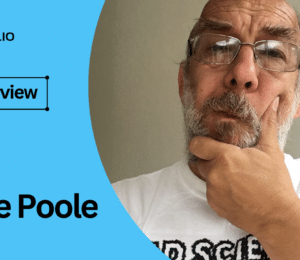
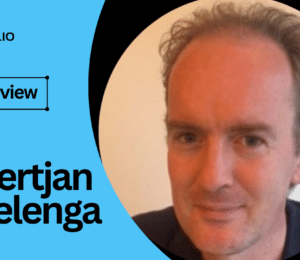
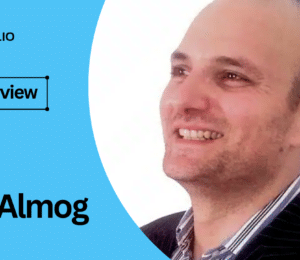
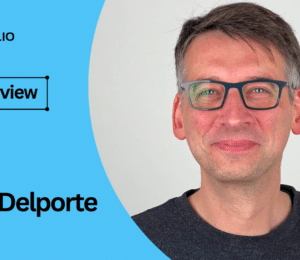
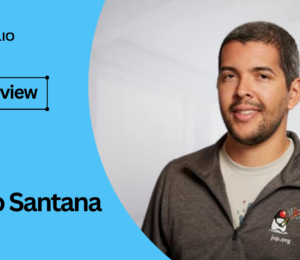

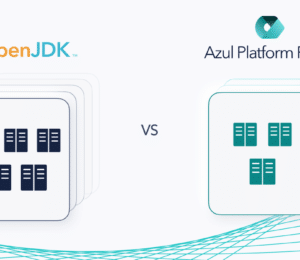

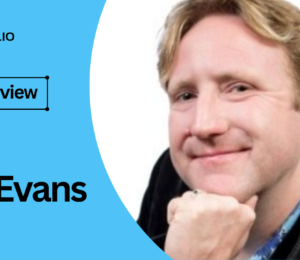
Comments (0)
No comments yet. Be the first.